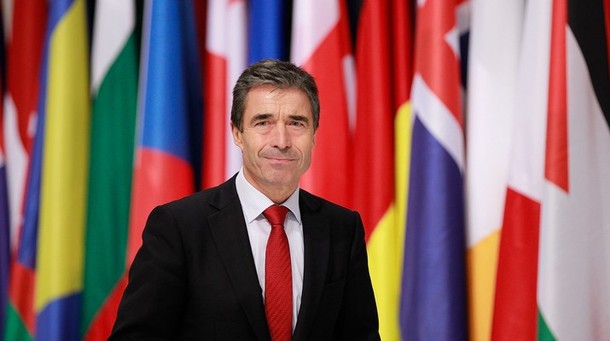
From NATO: Over the past two years, defence spending by NATO’s European member nations has shrunk by some 45 billion dollars – that is the equivalent of Germany’s entire annual defence budget. Indeed, NATO Allies are starting the new decade further apart than ever before in terms of defence investment. Ten years ago, the United States accounted for just under half of NATO members’ total defence spending. Today the American share is closer to 75 percent – and it will continue to grow, even with the new cuts in the Pentagon’s spending that Secretary Gates announced last month.
Some here in Europe are not so worried. They maintain that Europe is consolidating its place as one of the world’s top providers of humanitarian and development aid. And they suggest a division of labour within NATO – with the United States providing hard power, while its European Allies increasingly turn to soft power assignments like training and institution-building.
As a committed European – and a staunch Atlanticist — I find this suggestion at best naïve, and, at worst, dangerous. It is completely out of touch with today’s increasingly complex security environment. According to the Stockholm International Peace Research Institute, China has tripled its defence expenditure over the past decade. And India has increased its defence spending by almost 60 per cent in the same period.
As I speak, fast-moving events are unfolding in Egypt, Tunisia, and elsewhere in the Middle East and North Africa. The outcome of this turmoil remains unclear, its long-term consequences unpredictable. But one thing we know: old certainties no longer hold, tectonic plates are shifting.
At stake today is not just the world economy, but the world order. So why, now of all times, should Europe conclude that it no longer needs to invest in defence?
This trend has long-term consequences – and they are not hard to imagine.
First, we risk a divided Europe. Just a few big European nations would become the continent’s main security providers while other countries would lag further and further behind. Taken to its logical conclusion, that division could eventually undermine the very principles of collective defence and allied solidarity that underpin the North-Atlantic Alliance.
Second, we risk a weaker Europe. Without the hardware to back up its soft power, Europe’s potential to prevent and manage crises would be seriously diminished. And so would its credibility in upholding the principles and values that we hold dear: individual liberty, democracy, free trade, and the rule of law. These principles and values underpin our open societies and form the foundation of the global order.
And third, we risk a Europe increasingly adrift from the United States. If Europe becomes unable to make an appropriate contribution to global security, then the United States might look elsewhere for reliable defence partners.
Excerpt from keynote speech by NATO Secretary General Anders Fogh Rasmussen at the 2011 Munich Security Conference. (photo: Getty)
Image: getty%202%207%2011%20NATO%20SecGen.jpg
